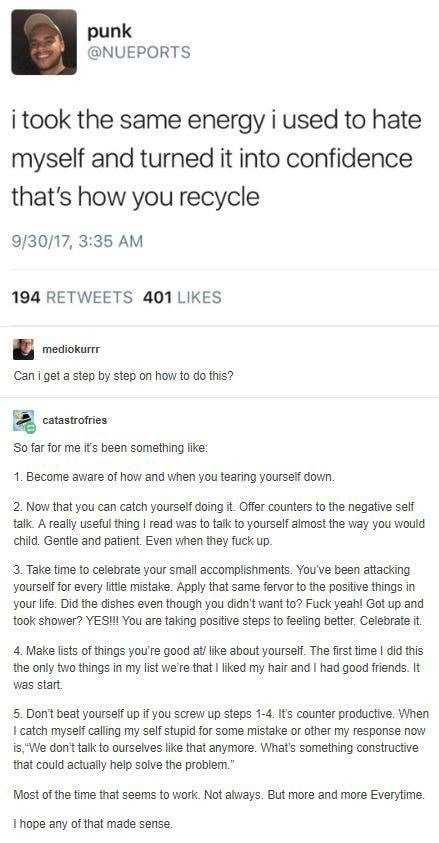This post originally started as an exploration of what Imposter Syndrome was and how I thought I’d experienced it. Last year I chose to do a post reflecting on how I’d progressed from the original in 2021 and I thought, why not do a 3rd?
This is a NSFW post, I swear a lot.
So what’s the definition of ‘imposter syndrome’?
Impostor syndrome (also known as impostor phenomenon, impostorism, fraud syndrome or the impostor experience) is a psychological pattern in which an individual doubts their skills, talents, or accomplishments and has a persistent internalized fear of being exposed as a “fraud”. Despite external evidence of their competence, those experiencing this phenomenon remain convinced that they are frauds and do not deserve all they have achieved. Individuals with impostorism incorrectly attribute their success to luck, or interpret it as a result of deceiving others into thinking they are more intelligent than they perceive themselves to be. Impostor syndrome also occurs in normal human-to-human relationships. Based on this syndrome, continuing doubts about people and individual defense mechanisms are considered difficult to achieve healthy relationships. While early research focused on the prevalence among high-achieving women, impostor syndrome has been recognized to affect both men and women equally
From an article in The Harvard Business Review:
Imposter syndrome can be defined as a collection of feelings of inadequacy that persist despite evident success. ‘Imposters’ suffer from chronic self-doubt and a sense of intellectual fraudulence that override any feelings of success or external proof of their competence. They seem unable to internalize their accomplishments, however successful they are in their field. High achieving, highly successful people often suffer, so imposter syndrome doesn’t equate with low self-esteem or a lack of self-confidence. In fact, some researchers have linked it with perfectionism, especially in women and among academics.
Let’s get into the reflecting
The version of me that made the first post, would not recognise the person I am today, for many reasons. I jokingly call it that I have been doing ‘self therapy’ (not being able to afford actual therapy), for the last three years. I have challenged and worked on every part of me that was making me miserable, from my relationship with my body and exercise, to my issues with sleep, self- confidence, self-worth, my relationships with other people and just, simply, the ability to keep my room clean.
But imposter syndrome was my biggest one to beat. I have historically had the worst luck with my jobs, barring my last one and the one I’m currently in. Now I know that there was a part of me that believed the mistreatment I received and the ways in which my age or in-experience were taken advantage of, was justified. I deserved it because I was an imposter and these people had simply found me out. I didn’t deserve a crumb of what I had tricked them into allowing me.
Whoever will sit there and tell you that ‘work is just work’ and that it doesn’t need to affect the sum of your life, has never had a panic attack in a cupboard. If you work full time, the majority of your time is spent in work, or doing things to prepare you for work. Being miserable 90% of your week is soul crushing.
Last year I wrote about how I decided to adopt a ‘fake it ’til you make it’ policy and you know what? It’s still working for me. This is where I act confident, I acted like I knew what I was doing and I kept doing it until, eventually, it became true. I am in on the ruse, I’m a spy playing a marketer, I’m ‘marketing barbie’ controlled by a little girl playing pretend. I’m an imposter who knows it and is in charge of keeping the act going. It’s not me doing the smart-smart stuff, it’s the imposter (to be clear, it is me, obviously, but somehow convincing myself I am faking, all the while I am doing the thing, cancels out the imposter syndrome).


Somehow, over time, it stopped feeling like an act. I stopped feeling the crushing, sinking feeling of ‘I cannot do this’ because it turned out that, in a workplace that fostered growth and had grace for mistakes, I could fucking do the thing. I was, in fact, capable of many fucking things. This trait was, perhaps, the reason I had survived those previous work places.
For a while, it made me so angry: I had wasted so much time doubting myself. I was capable of SO much in the right environment and with a bit of space outside of work to do a little personal growth. An issue that has dogged me through school, uni and my working life, didn’t need to be a fucking issue. I had been let down time and time again. No, I did not need someone to hold my hand but I did need someone to go ‘here is how you learn the tools to do this’.
It is somewhat disgraceful that most of my skills are self taught even still. Because I was neither dumb, nor really smart, nor was I ill-behaved or really good, I was thoroughly mediocre and skating just around my predicted grades, so the education system couldn’t give a fuck about me. I learned how to pass exams. I did not learn skills that prepared me for the working world. Also, there was nothing about the retail working experience that prepared me for all the un-written and, frankly, archaic rules and social systems of an office based environment. I should not be able to offend a grown-ass adult with my use of either ‘best’ or ‘kind regards’ or ‘thanks’ at the end of an email.
… that last bit was a bit off topic but I do see all these things as what contributed to imposter syndrome so bad it was crushing me.
Now, I rarely get sparks of that feeling, or if I do, I have enough evidence now to point out to myself that I am wrong. By no means am I some incredible innovator but I know how to do a lot of things that are useful to people and those things have worked elsewhere. I have also doubled my salary in less than 4 years. Even being made redundant didn’t really knock me, because I knew I’d done the best job I could and the circumstances were outside my control.
Maybe I won’t need to do a part 4? Although, in the context of me as a writer, I may have some way to go, so perhaps we tackle that next.











Leave a comment